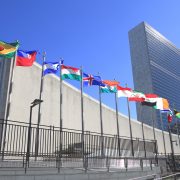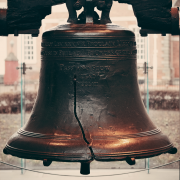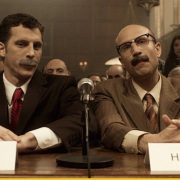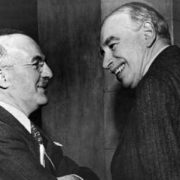Ralph Peters, writing in the New York Post, and comparing the freedoms we enjoy in the USA to the tyranny of Russia and other countries, refers to personal responsibility as “that great burden of democracy”.
He appears to believe that many of us would prefer tyranny because it’s easier to bear:
“Tyrants may oppress you. They may lead you into disastrous wars. But they don’t demand that you take personal responsibility, that great burden of democracy.”
For him, personal responsibility is a bug in our system. For F.A. Hayek, the great philosopher of freedom, it is a feature, and, in fact, one of the most important features of a free society. In a society of laws, we expect each individual to act in accordance with a moral code that has evolved over the centuries to guide behavior in such a way that each individual can strive for the best personal outcome, while at the same time serving his or her peers so as to contribute to the best outcome for the entire society. The first aspect of personal responsibility is to act individually in accordance with the moral code.
The second aspect, in Hayek’s thinking, is for each individual to accept the freedom of utilizing their own special individual knowledge and unique circumstances to achieve the best result for themselves. The opportunities for different individuals are different.
“It is because the circumstances in which the different individuals find themselves at a given moment are different, and because many of these particular circumstances are known only to them, that there arises the opportunity for the utilization of so much diverse knowledge.” (1)
It is the individual actions of each of us, embracing the responsibility of acting on our own personal circumstances and using our own unique individual knowledge, that bring about the spontaneous order of society: the self-organized system that is best for all participants precisely because each of us is free to act in our own personal interests.
Any concept of central planning, by a Russian tyrant or a Federal Reserve bureaucrat, not only impedes the advancement of a beneficial spontaneous order, it is contradictory to the underlying concept of freedom.
“The idea that government can determine the opportunities for all, and especially that it can ensure that they are the same for all, is therefore in conflict with the whole rationale of a free society.” (2)
For Hayek, the traditions and national character of a society are the result of “general rules”, of which the taking of personal responsibility is one, guiding the perceptions and behaviors of the people. Even concrete icons like flags and shrines and the leaders we choose are just symbols of the rules that we follow. The conditions of freedom are that individuals are allowed to use their own knowledge for their own purposes and take the responsibility of doing so, rather than seeking that the government determine their outcome. The rule of law is to provide the context in which private activity can be pursued, not to direct that activity to specific ends or to determine its outcome. The general welfare is the maintenance of spontaneous order, via the individual pursuit of an infinite variety of personal purposes, unknown to the authorities.
Ralph Peters is a retired US Army lieutenant colonel. He is imbued with the idea of top down authority designing outcomes, and telling everyone in the hierarchy exactly what they should do. Maybe that’s why he does not cherish personal responsibility quite so much as do private citizens.
Personal responsibility is no burden. It is a feature of a free society that we must all embrace with enthusiasm and gratitude – and a sense of its historical application that brought us to where we are today – if we are not to succumb to the blandishments of tyrants who urge conformity and dependence. Personal responsibility is the P.R. we should all seek for ourselves.
(1) Law, Legislation and Liberty; F.A. Hayek. Vol 2 The Mirage Of Social Justice.
(2) Ibid













